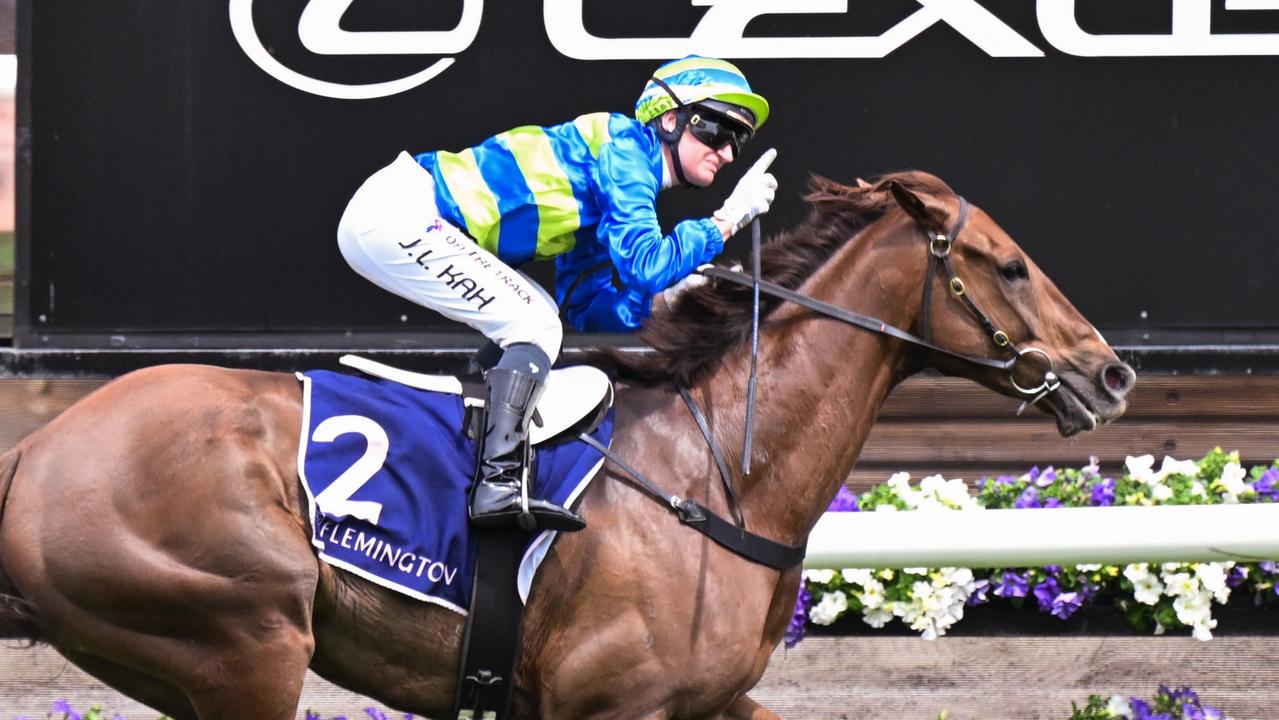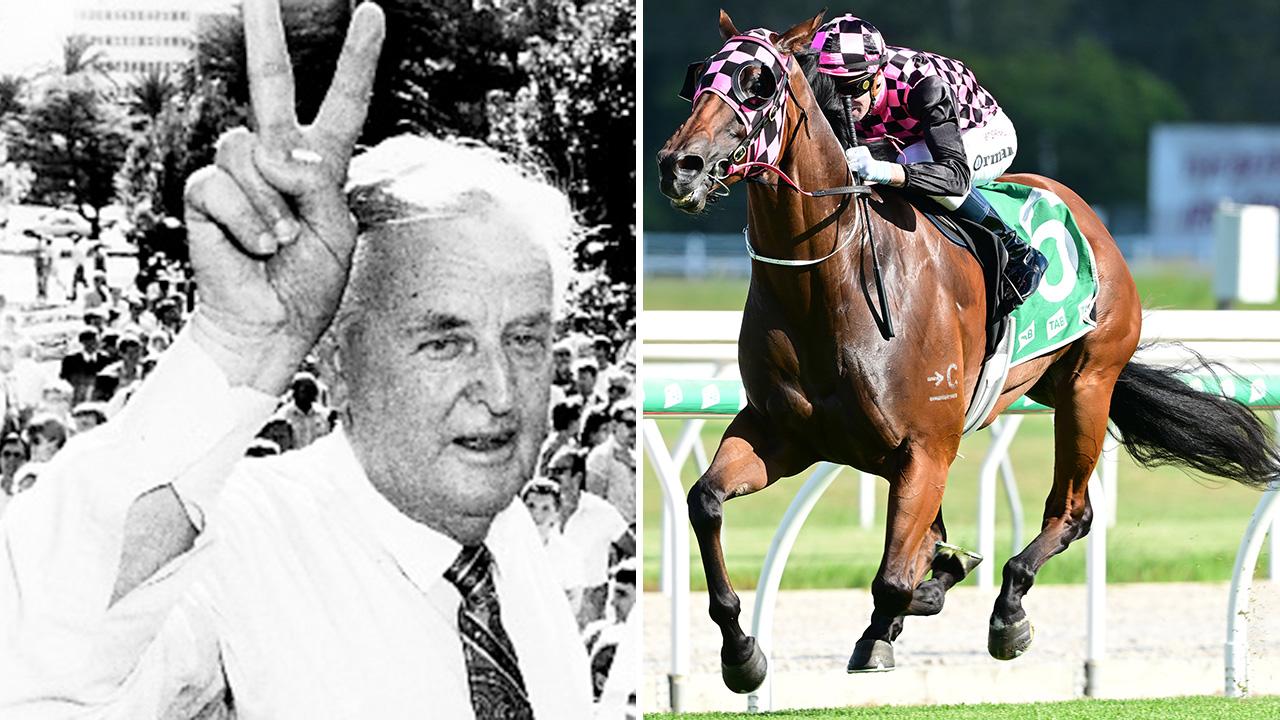Southport service for champion jockey Edgar Britt
UNTIL his sad death at age 103 this week, Australia’s oldest jockey, Edgar Britt, was the last remaining track star to have known what it was like to have galloped against the immortal Phar Lap.
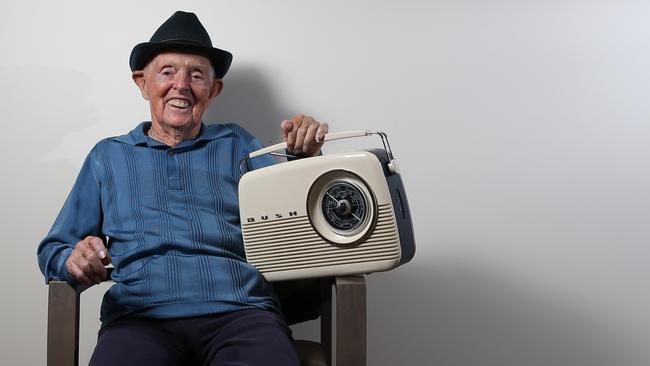
Racing
Don't miss out on the headlines from Racing. Followed categories will be added to My News.
UNTIL his sad death at age 103 this week, the man acknowledged as Australia’s oldest jockey, Edgar Britt, was the last remaining track star to have known what it was like to have galloped against the immortal Phar Lap.
Britt died on January 28. A service to celebrate his life will be held at the SCC Convention Centre at the corner of Olsen Ave and Griffith Way, Southport, at 1pm today.
When interviewed in 2013 before his 100th birthday, it was understandable he could not remember the exact dates or tracks where he encountered the legendary Phar Lap.
“It was such a bloody long time ago,” he told Sydney’s Daily Telegraph at the time.
“Phar Lap raced in Melbourne and Sydney during the Great Depression, and that was when I was just starting. All I can recall is looking at his big backside disappearing in front of me.”
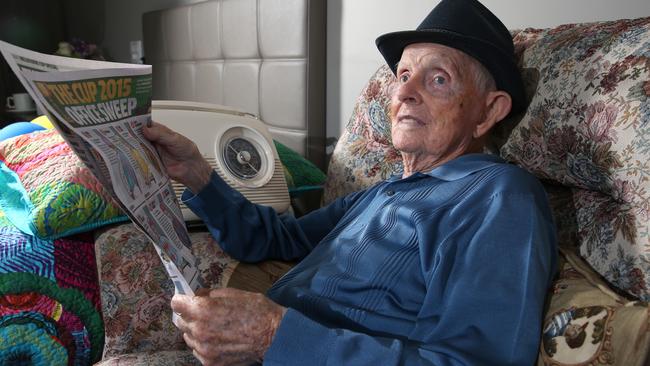
Britt’s memory is better about Jim Pike, Phar Lap’s jockey.
“Jim loved a bet but he was very generous with apprentices,” recalled Britt.
“Although Jim gave no quarter in a race, he often used to get me in a corner afterwards to point out the mistakes I’d made and how I could have avoided them.”
Britt was inducted into the Australian Racing Museum’s Hall of Fame. His record of more than 2000 victories on four continents against quality horses and champion jockeys was an incredible achievement.
Britt had left school at 13 to become an apprentice jockey.
He recalled that after a particularly good season when he was 18, his Randwick-based trainer Mick Polson whispered: “Do you know, Edgar, that this year you have earned more than the Premier of NSW?”
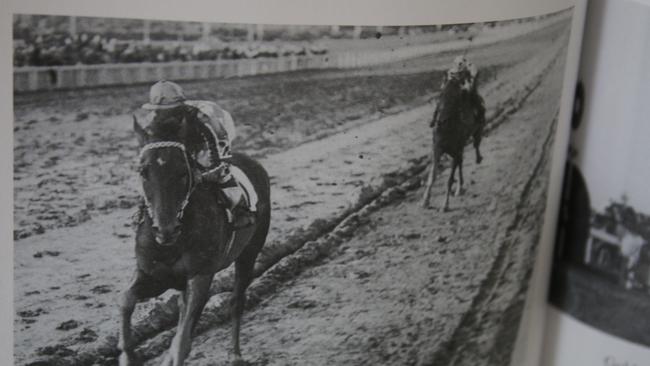
After he retired and returned to Australia in 1959, Britt began a new career as a racing columnist for the Daily Telegraph for 16 years. In 2004 he was awarded the Order of Australia medal for services to horse racing as a jockey, commentator and journalist
The Daily Telegraph reported that in his prime, Edgar Britt was “four feet 11 inches” (1.5 metres) and weighed around five stone (32kg).
He only ever raced in two Melbourne Cups before being enticed abroad. In 1932 his mount was unplaced, but in 1934 he finished fourth on Broad Arrow behind winner Peter Pan. He won the Sydney Cup that same year, again on Broad Arrow.
International victories included seven English classics (two St Leger, two Oaks, two One Thousand Guineas and a Two Thousand Guineas); the Irish Derby; the Baltimore Handicap in the US in 1933 on Winooka; plus a decade in India during the 1930s and 1940s, wearing the competing colours of mega-rich maharajahs and winning the Indian jockeys’ premiership eight times.
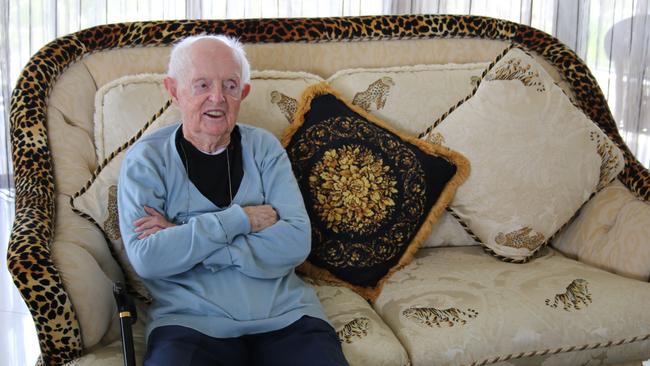
Three years after arriving in England in 1945, Britt became the royal jockey for King George VI, “an excellent owner who believed in leaving his trainer to give the riding instructions, but who knew the form closely”.
Some of his favourite memories involved the Queen, whom he first met when she was the young heir to the throne.
Once in 1948 Princess Elizabeth and her sister, Princess Margaret, walked into the mounting enclosure at Hurst Park.
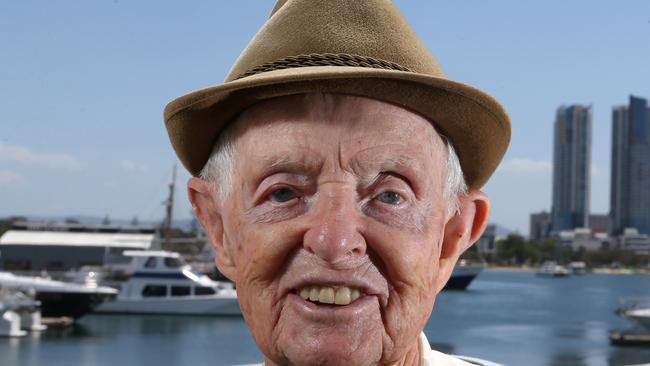
“She’d always say hello,” he said. “You could always have a conversation with her, especially if it was about horses or how the race would be run.
“She would have been about 18 or 19. It was one of my first rides for the royal family and they seemed to have a soft spot for Avila, the horse I was riding that day.
“She said ‘Will she win?’ and I said ‘I think so, but I might have to give her a bit of smack with the whip’.
“Dead silence followed. I’d said the wrong thing. I’d forgotten the royal family didn’t like to see their horses being whipped.
“Anyway, the call came to ‘jockey up’ and the princesses said they’d go but see me after the race. Then as she was leaving, Princess Margaret raised her hand, made a whipping motion and said ‘If she needs a whipping, give her one’.”
Did he need to?
“No,’’ Britt had told the Daily Telegraph. “She won easily.”
Britt was father and father-in-law to Iris and Tony, Jo and Hessink, Ann and Bruce, and Marcia. He was also a grandfather, great grandfather and great-great grandfather.

